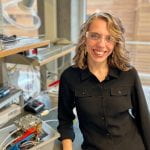 We are pleased to announce that Melanie Kascoutas, Willow Davis, and Keyan Li have been selected as the recipients of this year’s UO Chemistry and Biochemistry Department doctoral fellowships.
We are pleased to announce that Melanie Kascoutas, Willow Davis, and Keyan Li have been selected as the recipients of this year’s UO Chemistry and Biochemistry Department doctoral fellowships.
The Haugland Fellowship is a three-year, graduate fellowship and tuition award presented every three years to an outstanding graduate student in the Department of Chemistry and Biochemistry. The award was established by Dr. Rosaria Haugland in 2004.
The Keana Fellowship is an annual graduate fellowship awarded to outstanding graduate students in the Department of Chemistry and Biochemistry. The award was established in 2017 by Dennis and Janet Beetham in honor of Professor Emeritus John Keana.
We asked our 2024 recipients to tell us a little about themselves and their science.
 Melanie Kascoutas
Melanie Kascoutas
Haugland Fellowship
I grew up in San Marcos, California, and spent my summers enjoying the sunshine and beaches. In elementary and middle school, I found my passion for STEM courses. I discovered my fascination with chemistry in my junior year of high school during my AP Chemistry course. I enjoyed the challenging nature of the content and found the scientific rationale fascinating, which made me eager to learn more.
I received my BS in Chemistry from California Polytechnic State University in San Luis Obispo, CA. My favorite courses were the organic series, taught by Dr. Palandoken, and physical organic chemistry, taught by Dr. Kantorowski. These courses exposed me to the world of organic mechanisms. I quickly developed a passion for solving organic mechanisms since they felt like my favorite puzzles. I also had the pleasure of performing undergraduate research with Dr. Haynes, which sparked my interest in organometallics and troubleshooting reaction optimization. The culmination of these experiences led me to apply for graduate school and pursue a PhD in chemistry, something I never imagined I would be capable of doing when I was younger.
I decided that I wanted to continue exploring my passion for reaction mechanisms, and in doing so, I started graduate school at UO in the fall of 2021. With each milestone I hit, I am reminded of the immense amount of knowledge I’ve gained and the confidence I’ve developed to call myself a scientist. As I dive deeper into chemistry, I continue to find strength and resilience I’d never dreamt was possible.
My Research I’m a 4th-year PhD candidate in the Amanda Cook lab. My research focuses on designing nickel and palladium catalysts to transform organic molecules into more desirable products. Applications of my research extend to improving the syntheses of commodity chemicals, pharmaceuticals, and agrochemicals. I am particularly interested in creating catalysts that are simple to use and highly efficient. Oftentimes, organic reactions become fairly complex with many “ingredients” and challenging technical steps. My goal is to create robust catalysts that can be handled in air or recycled for future uses. I am currently developing a heterogeneous palladium catalyst for hydroamination reactions to synthesis bioactive compounds. My favorite aspect of my research is performing mechanistic experiments because you can only disprove potential reaction pathways based on the evidence you gather. By process of elimination, you can determine the most likely reaction mechanism.
What’s Next? I’m open to future career plans, but I do miss my sunshine and hope to move back to California. During my undergraduate studies, I had the wonderful opportunity to intern at biotechnology companies in San Diego. One path that I envision is becoming an industry scientist and helping solve problems that directly impact society.
Another path I could see myself pursuing is teaching. I would be honored to encourage young women and underrepresented people to pursue advanced degrees in chemistry. As I continue to mentor students in the lab, my heart grows fonder of mentorship; it’s extremely rewarding to assist others in building confidence with learning challenging techniques.
I’m extremely grateful to have won this award! I’m looking forward to spending more time investing in my research and mentoring the younger students in the Cook lab. I’d like to give a special thank you to my advisor, Dr. Amanda Cook for her guidance and encouragement for helping me develop as a chemist. I’m also grateful for my thesis committee for continuously believing in me and assisting me through difficult periods of graduate school. Lastly, I’d like to thank my UO friends (Alison, Katelyn, & Allison) and fiancée, Nick, for their endless support and lifting me up when I feel down. I wouldn’t have been able to receive this award without the support of those around me.
 Willow Davis
Willow Davis
Keana Fellowship
I grew up in Union, Kentucky and attended Northern Kentucky University, just outside of Cincinnati, Ohio, for my undergraduate degrees in Chemistry and Theatre. While in undergrad I worked in a physical chemistry lab under Prof. Charlisa Daniels, where I got my first taste of independent research and was given incredible support and encouragement to pursue my PhD. I started at UO during the summer of 2020 and am currently a fifth-year graduate student. During my time at UO I have been very involved in mentorship and community building within both our chemistry department, and across STEM, generally. While working towards my PhD, I was President of UO’s Women in Graduate Science (WGS) organization and have been heavily involved in outreach both through WGS and outside. Some of my favorite outreach activities have been Valley Catholic Middle School’s Women in STEM Day and presenting my research during the Lane Community College Graduate Student Lecture Series through UO’s Alliance for Diversity in STEM and Engineering (ADSE).
My Research In the Darren Johnson lab my research is focused on better understanding the assembly of large, cyclic, sulfur-bearing molecules using pnictogen-assisted self-assembly methods developed in our lab. These types of molecules have been finding increasing value for use in applications like targeted drug release, and for sensing biological disease states and environmental contaminants like PFA/PFOA “forever chemicals”. By better understanding how to make these molecules, and how they interact with their environment, we can design more effective molecules for real world applications.
What’s Next? I am planning to defend my PhD in the spring of 2025 and am currently applying for a post-doc position in the areas of chemical biology and supramolecular chemistry. After completing a post-doc I hope to stay in academia and run my own research program. I am very excited to continue mentoring students, teaching, and exploring new areas of science!
I am so grateful to have been awarded the Keana Fellowship this year! Huge thanks to Darren for all of his support and guidance over the past four years, and to my lab mates. Thank you as well to my incredible friends, who inspire me every day, and our chemistry faculty and staff, without whom our research wouldn’t be possible.
 Keyan Li
Keyan Li
Keana Fellowship
I grew up in Chengdu, China and moved to Sacramento, California, in 2013 to study abroad. After graduating high school, I attended the University of California, Davis, to pursue my bachelor’ degree in chemistry. Post-graduation in 2017, I started my PhD studies in Chemistry at the University of Oregon. Conducting chemistry research so far has been a truly rewarding experience. I feel incredibly privileged to have worked with many outstanding mentors and colleagues that have taught me to think about science critically and to come up with creative solutions for challenging problems in the field.
My Research I am a rising fourth year graduate student in Professor Mike Pluth’s research group. My research broadly focuses on understanding the roles of reactive sulfur and selenium species such as hydrogen sulfide (H2S) and hydrogen selenide (H2Se), which play critical roles in human health. In particular, I am developing small molecular models of these biologically relevant reactive species to study their interactions with metal ions central to life and other important biological targets.
What’s Next? I plan on pursuing a postdoctoral position after graduation and ultimately seeking a faculty position at a research-intensive institution.
I am incredibly honored to have received the Keana Fellowship, and I am grateful to Mike, members of the Pluth group, other faculty members and research staff for their support over the years.


 Helen Davis
Helen Davis  Lilliana Granados
Lilliana Granados Amelia Kotamarti
Amelia Kotamarti Hannah Novak
Hannah Novak Logan Russo
Logan Russo Cherish Sparling
Cherish Sparling Waverly Wilson
Waverly Wilson






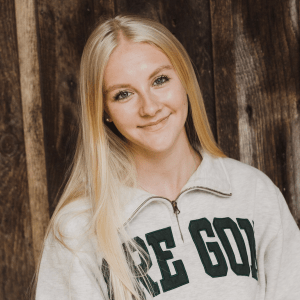 Nadia Barnard
Nadia Barnard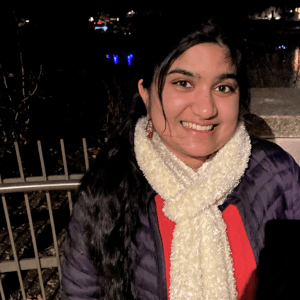 Mayurika Bhaskar
Mayurika Bhaskar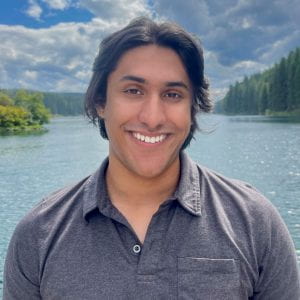 Ethan Busi
Ethan Busi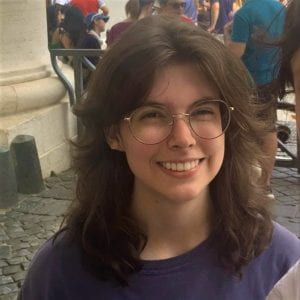 Michaela Cheechov
Michaela Cheechov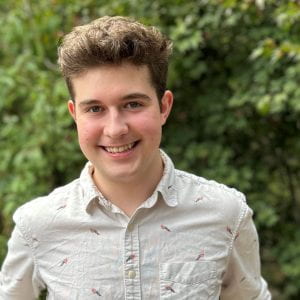 Nick Frainey
Nick Frainey Logan Russo
Logan Russo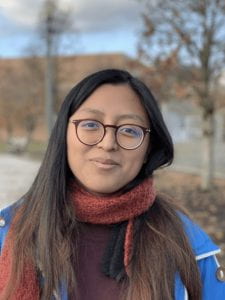 UO Chemistry graduate student Gaby Bailey has been selected to receive a
UO Chemistry graduate student Gaby Bailey has been selected to receive a 





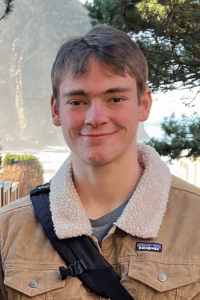
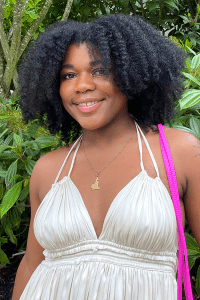
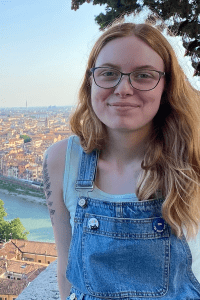
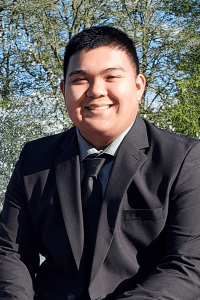
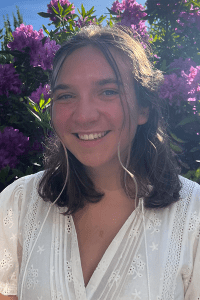
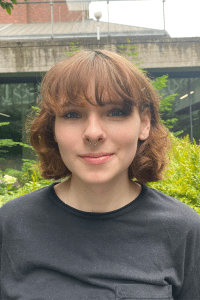
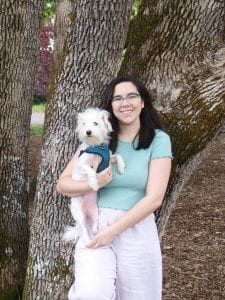 UO Chemistry graduate student Kalika Pai has been selected to receive a
UO Chemistry graduate student Kalika Pai has been selected to receive a 
